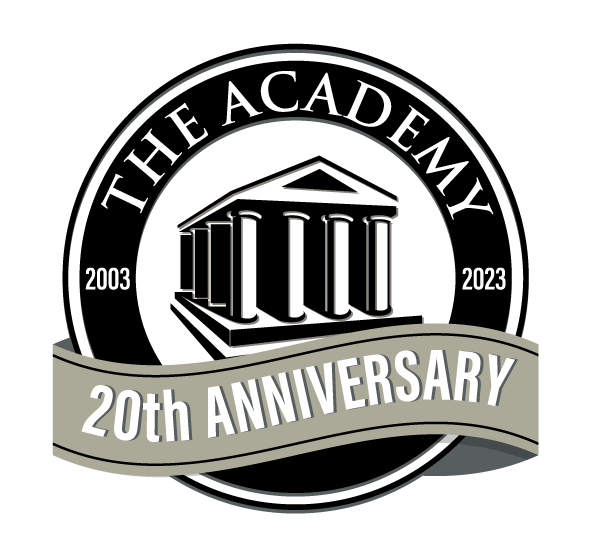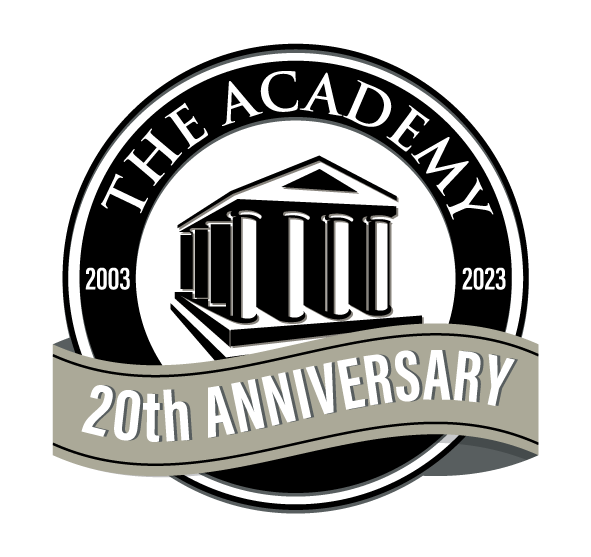Learn to Code and Program in Florida
Learn Programming
Becoming proficient in programming is as simple as signing up for one of our Computer Programming training courses. We offer training for Introduction to Programming, Agile Development with Scrum, Introduction to Programming with C++, and Object-Oriented Analysis and Design Using the Unified Modeling Language. All classes are delivered by one of our experienced trainers.
From hands-on, instructor-led live online Computer Programming training for individual employees to private online or on-site group training, we provide the best option for your company. Our online Computer classes are task-based and focus on real-world scenarios and challenges students face in their day-to-day environments. The online Computer Programming Training that we offer is a great way to quickly build upon the necessary skills within the privacy of your own home or office. If you are looking for local Computer Programming courses, you can check one of our many computer labs around the United States. Each Computer Programming class we offer provides the training a person will need to understand and use the program.

Attend the following hands-on, instructor-led cybersecurity training classes at The Academy. Not near one of our locations? Attend these same live classes from your home/office PC via our Live Online Classroom (LOC) format.
Learn Web Development
Having a website is essential for virtually every business today. The latest mobile devices and applications are changing the way we communicate, do business, and access news and entertainment. Having a fundamental knowledge of HTML, Cascading Style Sheet (CSS) and JavaScript is extremely helpful even if you’re using a web design program. With courses and training from The Academy, learning web design is easy, you can learn HTML5 / CSS3 skills to become an expert. All classes are delivered by one of our expert trainers.
Learn computer programming to create and maintain websites. Professionals with this coding job typically spend their time testing new applications and components of websites, writing code, and working with a client or team to identify the scope and requirements for the website. Web developers may specialize in front-end or back-end development, or they may work on both as a full-stack developer.

Are you looking for HTML coding for beginners? Do you want to learn CSS3? Our web development courses are perfect for you! From hands-on, instructor-led live online HTML and Cascading Style Sheet training for individual employees to private online or on-site group training, we provide the best option for your company. Our live online HTML classes and Cascading Style Sheet classes are task-based and focus on real-world scenarios and challenges faced by students in their day-to-day environments. The online HTML Training Classes that we offer are a great way to quickly build upon the necessary skills within the privacy of your own home or office. If you are looking for local HTML lessons and CSS courses, you can check one of our many computer labs around the United States.
Attend the following hands-on, instructor-led cybersecurity training classes at The Academy. Not near one of our locations? Attend these same live classes from your home/office PC via our Live Online Classroom (LOC) format.
Programming And Web Development FAQ's
A: We have several programs depending on your budget. However, our most sought out program is the Programming and Web-Dev program (link) which helps you become skilled and proficient in Programming and Web Development.
A: The necessary laptop specs for programming or coding will depend on the type of programming language that you intend to work with. While each programming language can have its ideal hardware requirements, certain specifications can be used as a baseline when buying a machine for coding. A laptop with a CPU featuring an i5 processor, at least 8 GB of RAM, and a 500 GB SSD may help you complete basic coding tasks. Depending on your specific needs, you may also need to consider screen size and resolution, keyboard attributes, HDMI ports, USB hubs, and card reader components.
A: How long it will take you to become a software developer can depend on your existing skills and education as well as your specific career goals. For example, if you want to perform the same duties as a software engineer, you may need a four-year degree, while focusing on front-end design and “big picture” implementation of software may only require that you sign up for shorter training classes or boot camps. Students new to the industry should look for classes that teach the fundamentals of the platforms and languages with which they want to develop software.
A: If you’re new to front-end development, you can start your journey to becoming a professional by acquiring knowledge in client-side work. You can learn on your own, enroll in training courses, or obtain a computer science degree. Build a portfolio of impressive projects to show to employers by doing free or freelance work. Maximize your opportunities by applying for internships, networking, and attending relevant conferences. Given that the particulars of a professional path can depend on your personal skills, knowledge, and experience, becoming a front-end developer can take anywhere from months to years.
A: To get started with learning computer programming, you’ll first have to identify your areas of interest. Determine which software frameworks and programming languages you want to work with and take courses that teach their fundamentals. While free learning resources exist, paid, structured courses are often more comprehensive and respected by employers. Students will often have to commit weeks or months to learning computer programming, and some will even devote years to earning a computer science degree. But more efficient methods are available, including flexible online programs.
A: The specific training that a professional needs to become a software engineer can depend on the specialty they pursue. Since there are several different types of software engineers, the applications and programs that they use can vary by discipline. Software engineers may use a wide variety of software when designing, creating, implementing, testing, and upgrading programs as well as different programming languages, depending on their jobs and projects. Getting the appropriate training, whether on-site or online, can ensure the success of an individual in the software engineering field.
A: The educational requirements and skills needed to become a Web developer can depend on the type of job that you choose to pursue. For example, front-end Web developers are client-side creators and may need skills with HTML, CSS, and JavaScript, among others, while back-end Web developers who work on the server side may need proficiency in areas including PHP, Python, and Java. Some employers look for candidates with an associate or bachelor’s degree in computer science, but others may only require Web developer experience. Web development is a great field for logical and creative problem-solvers.
A: For many, the best way to learn HTML and CSS is at the same time and with the guidance of a live instructor. Students who sign up for courses taught by professional, knowledgeable teachers can often learn HTML and CSS in as little as a few days. While practicing HTML and CSS may require a time investment of a few more weeks before students’ skills are good enough to implement in a professional setting, high-quality training can give you the knowledge necessary to build websites, design blogs, create corporate newsletters, and more.
A: Web design schools can offer two-year associate degrees or four-year bachelor’s degrees, but a degree in Web design is not required to become a Web developer. The amount of time that it takes to become a Web developer can depend on whether you want to pursue front-end, back-end, or full-stack development. There’s no one standard path to becoming a Web developer, but building your knowledge of coding and programming languages, earning certifications, and enrolling in Web development courses and boot camps can put you on the fast track to becoming a professional.
A: The minimum system requirements needed for Web development tasks will depend on the type of Web development that you intend to learn. For example, appropriate computer specs for coding can differ from those that are suitable for Web design. Generally, when configuring a computer for Web development, you’ll want a system that has a screen (or two) large and crisp enough to read easily, at least 8 GB of RAM, and a quad-core i5 or i7 processor that has a speed of at least 3GHz. Check with your instructor or employer for guidance regarding computer spec requirements.
A: The best way to learn WordPress can depend on your professional goals and the type of educational materials that you prefer. For example, taking formal courses can prove your proficiency with the software, while referencing technical support documents on the official WordPress website can inform those who just need to learn about security or technical issues. Online courses are the most accessible and effective option for most, as they can be convenient and structured to help you learn. While most novices can learn WordPress basics in a matter of days, those who want to acquire an advanced skill set may require months of study.
A: The kind of training that you will need to become a Web designer can depend on your professional objectives and your existing knowledge base. Corporate employees may need a certificate or degree to be hired, while freelancers may be able to win contracts with little formal training. The most important thing is to make sure that you have the skills you need, which you can accomplish in multiple ways.
A: The path to becoming a Web developer can depend on an individual’s time, resources, and professional goals. You could always earn a college degree in computer science or electronic arts, but there are also more affordable and efficient methods to get the skills you need, like instructor-led online Web development courses. First, identify the specific areas of Web development that interest you; then pursue relevant training so that you can practice, earn credentials, and build a portfolio to impress employers.
Possible Job Positions for each program
Possible Job Positions for Web Development
Webmaster, Web Developer (Full-Stack) – A Full Stack developer is someone who works with the Back End -or server site- of the application using Python, JSON, Ruby, Golang, Java, C#/C++, SQL as well as the Fron End, or client side, which works with HTML, CSS3, and JavaScript. Full Stack developers have to have some skills in wide variety of coding niche, from databases to graphic design and UI/UX management in order to do their job well. They are something of a swing, ready to assist wherever needed in the process. Other titles can include:
· Front-End developer
· Back-End developer
· Full Stack developer
· Web Designer
· Web Analysts
· UX/UI Engineer

Possible Job Positions for programming
MCSA/MCSE SQL Data Management and Analysis Professional – create new software, websites, and other applications, and they ensure that applications and software run smoothly. In addition to writing new code, programmers also test code for errors and spend time updating and enhancing already developed programs. Computer programming is a common entry-level coding job, and is also often a remote coding job
· Computer programmer
· Web Developer
· Software Application Developer
· Computer Systems Engineer
· Database Administrator
· Software Quality Assurance Engineer
· Business intelligence analyst
Starting salary after completing our web-development program or bootcamp courses
Webmaster, Web Developer (Full-Stack) – $57,467 – $138,373
Starting salary after completing our programming program or bootcamp courses
MCSA/MCSE SQL Data Management and Analysis Professional – $57,484 – $110,669

